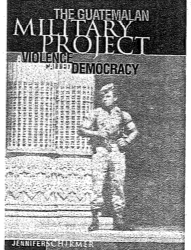Policy Makers
Expanding Computer Prowess

When Jeanette Dubois arrived in Cambridge from Grenada on a sunny day in June to attend a five-week workshop on education policy, little did she know that she would be embarking on the most intense relationship she would ever have with a portable computer. As Permanent Secretary of Education, Dubois had used computers in her work for several years. But with the technological revolution taking place throughout the world, she felt that she needed to find out about the state-of-the-art in her field, namely, how computers applications can be used in the policy and decision making processes of managing education systems. After five weeks of classroom discussions, demonstrations, exercises, and computer labs, she left with a deepened understanding as well as hands-on practice in how to use computers to enhance the knowledge base required to improve the education system in Grenada.
Every summer, Harvard Institute for International Development hosts the Educational Policy Analysis and Planning Workshop for education officials from developing countries, including Latin America. Participants have attended from over 40 countries. This workshop is geared to helping education officials learn to use empirical, objective, and timely information in the policy making arena with the objective of transforming static educational bureaucracies into active management enterprises. Many countries lack basic data about their education systems. Even fewer produce quality research about the issues that are encumbering the educational development of their countries. Therefore, the well-designed and well-managed use of computers can have an enormous impact in these settings.
In the technology component of the workshop, participants learn how to use spreadsheets, databases, and statistical packages to explore and answer questions about education issues. They build models of education systems to assess the impact of alternative policy choices. They also learn how to make effective presentations using presentation software packages. In addition, workshop participants spend time exploring the internet. One thing that astounds many participants is the amount and quality of information about individual schools and school districts in the U.S. that is available on the internet, and the fact that such information is available to the public and easily accessible. This has inspired a number of workshop participants to log on after they get back home and give demonstrations to their Education Ministers and other colleagues. A few have even used the internet to keep in contact with schools they visited in the Boston area during the program, exchanging information and views with teachers and school principals here in the U.S.
But as much as the workshop promotes and provides instruction on computer applications, the director, Dr. Thomas Cassidy, emphasizes that computers are not a substitute for the thinking that is the backbone of education policy. “They are merely the tools that allow educators to collect, process and communicate information.” With that in mind, the workshop instructors present frameworks for understanding education issues, policy interventions, and education reforms. Within those frameworks, instructors discuss and demonstrate the uses, and the strengths and weaknesses, of computer technology.
One example of an innovation in technology that Cassidy has applied to the education policy domain is the use of geographic information systems. Government officials from Namibia and Ghana have attended the workshop as part of on-going projects in their countries to develop geographic mapping systems with which to interface educational data. This technology has been used in Honduras and Paraguay, as well. Issues relevant to policy concerns, such as educational facilities, resources, student achievement, and teacher salaries can be displayed, singly or multiply, in visual map form. The maps can often be used to display information in ways that highlight issues that otherwise go unnoticed or seem insignificant to policy makers. Identifying hotbeds of problems, such as overcrowded or one-room schools, or concentrations of teachers without training or credentials, bring the reality of such situations to the fore in ways that lists of numbers, tables, and graphs cannot.
Former workshop participants tell us that the greatest impact the workshop has had on their subsequent work is that it allowed them to identify more clearly problems and issues within complex network of education systems and strategies for dealing with these problems. Among them are:
- methods and strategies for improving teaching and learning
- new and decentralized structures for the delivery and management of education services
- the development of new systems of accountability
- alternative methods of financing education
- the role of the private sector
- strategies for increasing participation in decision-making processes
- and strategies for linking education with the local and global needs of society.
Jeannette Dubois recently wrote us, “The interaction with the computer has really brought home more forcefully to me the need for greater use of information technology not only in education policy and planning but also in the development of our human resource capital in general. We have embarked on a $6.5 million dollar project to introduce computers, including the internet and of course email, into our secondary education and are seeking funding to embark on a similar project for primary education. Also, the use of computers has been very helpful in the preparation of the budget. In fact, it has transformed our approach to budgetary and manpower planning. Finally, I have been able to update the model I had developed during the workshop, and I still discuss where are and where we intend to go, using the model as the basis of that discussion.”
Another workshop alumna, Youmna Al Ashkar, who works at a private international school in Lebanon, said that the workshop “taught her how important it is to have clear policies and how well policy makers need to communicate their decisions to staff in order to have effective implementation and the most efficient desired outcome”. Her school has been working on integrating technology into their classrooms, curriculum and administration. She helped figure out how to raise the funds for the comprehensive Technology Plan for bringing technology into the school and sustaining it once it’s there. In addition to the usual classroom uses, the school is providing free computer training to teachers, staff, and especially to parents. She suggests that educators interested in doing something similar can check their web site at www.jmrab.edu.lb.
The workshop has had a number of participants from Latin America and the Caribbean throughout the years, but we would like to have many more.
Winter 1999
Claire Brown is the Education Workshop Coordinator at HIID. Anyone who is interested in learning more about the program can log onto HIID’s web page, www.hiid.harvard.edu, or send an email directly to her atcbrown@hiid.harvard.edu. All inquiries are welcome.
Related Articles
Linking Latin America
I have captured images of such seemingly disparate subjects as Mennonite immigrants to Mexico, Latina contestants for Selena standings, the Pope in Cuba, and traditional Sunday serenatas…
A Violence Called Democracy
As any journalist or diplomat who has spent time in Guatemala will attest, no group there is more difficult to penetrate than the Guatemalan Armed Forces. As much a caste as an institution, the…
Researching Latin America
The instant outpouring of Web information on the Pinochet case got me to thinking about communications on my first trip to Chile during the Allende presidency. I was armed for Ph.D…




